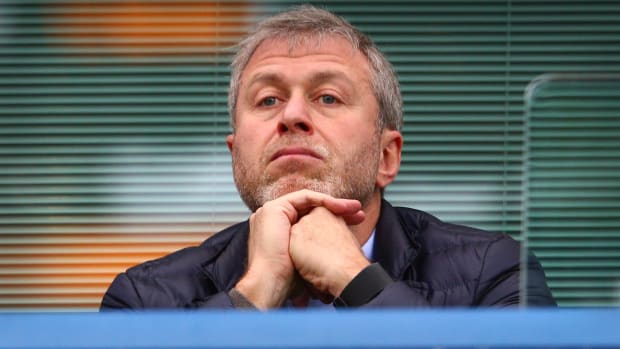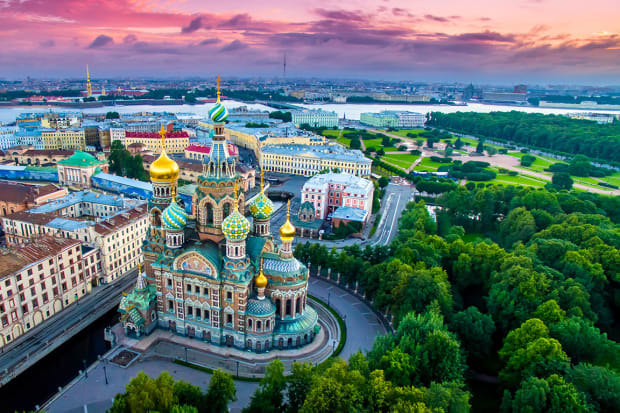It is a nation that even Charles Dickens would find a tough time describing.
Once the attempted dream of exact equality for all under official communism, Russia has been one of the world's largest monarchies, then a global force as the Soviet Union, and now a modern first world country with some of the wealthiest people in the world living alongside some of the most impoverished.
In short, it had a long and complex 20th century.
But with its latest chapter still being written, the question that even Dickens might ask is clear: If so much of Russia's wealth is now being frozen, is the age of the oligarch over?
A Little Background
Almost twice as large geographically as the United State, Russia's borders span from the very edge of Europe to almost Alaska. When it was the Soviet Union, it also encompassed bordering countries that included Lithuania, Poland and what was then Czechoslovakia, now the Czech Republic.
It also absorbed Ukraine.
The two countries have been at war for much of the last 1,000 years or so, as the larger nation attempts to gain entry to Ukraine's coveted sea port, and Ukraine rebels and establishes its own culture and government.
Prior to the beginning of the Industrial Age, their neighbors let them largely alone.
But once the continent itself became connected by its industry and railroad, and its monarchies even more accessible and intertwined by its easier travel and intermarrying, the idea that war was bad for business came to be an issue for both Russia and Ukraine.
And once the Industrial Age had solidified a class system that saw workers at the very bottom of the pile and the owners at the very top, the push for labor unions that would equalize power and create collective bargaining arrived.
In Russia, it arrived with a literal vengeance.
When the Soviet Union fell in 1991, it ushered in a whole new type of society — including a word that you have probably heard more of in the last week than in all the weeks preceding it put together: oligarchs.

Clive Mason/Getty Images
What Is An Oligarch and Why Do They Matter?
To be an oligarch in Russia before last Thursday meant you had power, money and, most of all, access — to virtually anything and everything you wanted, whenever you wanted it.
As Russia has grown into a contemporary nation and left behind its Soviet-era government of communism and vast reach across what are now nations in their own right — like Ukraine — the people who managed to get in at the ground floor of privatization have grown astronomically richer.
They often have also become even closer to Russia's main powerbroker, Vladimir Putin, as well as his aides and lawmakers. They sometimes have ties to the former Soviet-era intelligence gathering agency the KGB, of which Putin was an officer.
That has allowed them to help craft and benefit from policies that are in their interest, often at odds with international law and visibly different than the way an average Russian citizen might experience things like law, education and quality of life.
Why That Party May Now Be Over
Unfortunately for many oligarchs, those policies and people are now under close scrutiny from European and NATO authorities.
Anything and everything that can be sanctioned to put pressure on Russia is now coming into the crosshairs.
“Elites close to Putin continue to leverage their proximity to the Russian President to pillage the Russian state, enrich themselves, and elevate their family members into some of the highest positions of power in the country at the expense of the Russian people," the U.S. Department of the Treasury said in a statement this week.
"Sanctioned oligarchs and powerful Russian elites have used family members to move assets and to conceal their immense wealth.”
Wondering who made the list of Russians hit with sanctions? TheStreet has you covered.
For now, anyone who is an oligarch is likely feeling quite a bit of pressure to both stay off those sanctions lists and secure their wealth and freedom as quickly and permanently as possible.
And authorities are making sure they know it.
“We’re coming for your yacht. We’re coming for your jet. We’re coming for your ledger. That’s the key message,” Deputy Attorney General Lisa Monaco told “Bloomberg Technology” this week.

Shutterstock
Drop It Like It's Hot (Literally)
Now, along with those sanctions, has come a rash of fire sales of assets held by Russian oligarchs.
Everything from yachts to pricey London mansions to masterpieces of art are hitting the market at relatively reasonable prices, as people not yet on sanction lists yet attempt to liquidate what they can while they can.
Those are just the sales that are public: It is also likely that already-sanctioned Russians, which number around 450 (including the entire Russian parliament, the Duma) are quietly selling their high-end items off market and in places that do not have extradition treaties with the U.S., U.K. or the EU.
They are also investing in luxury goods like jewelry and clothing as a tangible way to put their savings and money to work, and perhaps as an easier thing to carry or move should bank accounts suddenly become frozen.
The savviest investors are also wondering what they may do with another form of currency, including bitcoin and other cryptocurrency, if they have a sudden flight to safety that regulators may not easily follow.
You can check out our deep dive into that in this piece.
One of the world's most prominent oligarchs, Roman Abramovich, has reportedly hit the trifecta by putting up his soccer club, Chelsea FC, up for sale, as well as his yacht and two pricey London properties.
You can read more about that in depth here.
Times Change and So Does Wealth
Ironically, the fire sale of assets and quick exit of oligarchs from places where they had always been welcomed for their wealth and connections echoes another piece of Russian history.
When the Soviet Union fell, the pro-communist forces seized the wealth of the upper classes and political elite, ostensibly to redistribute it to the people but with mixed results in actuality.
But one thing was for certain: The age of the aristocracy and its attendant masses of money, land and power was gone from Russia for the moment.
The class, known as White Russians to distinguish them from the communist Red Russians, still lives in exile, and for much of the 20th century hatched various schemes and attempts to reinstate the Russian monarchy.
Now, they may have found a new ally in that fight — the displaced oligarch refugee, who may have to start all over again in their struggle for power and wealth.







